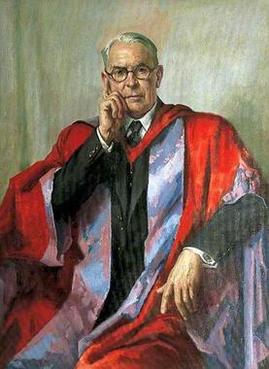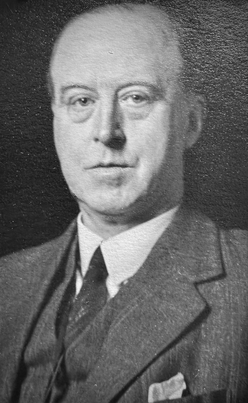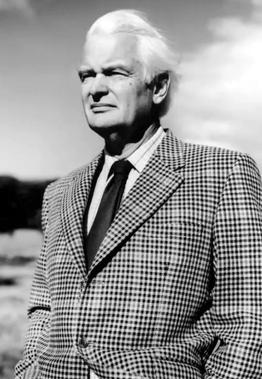Stephen John Field is a general practitioner and Chairman of The Royal Wolverhampton NHS Trust. He was previously Chief Inspector of General Practice at England's Care Quality Commission. He is a past chairman of the Royal College of General Practitioners. He is Honorary Professor of Medical Education at the University of Warwick (2002–present) and Honorary Professor in the School of Medicine at the University of Birmingham (2003–present).
UCL Medical School is the medical school of University College London (UCL), a public research university in London, England. The school provides a wide range of undergraduate and postgraduate medical education programmes and also has a medical education research unit and an education consultancy unit. It is internationally renowned and as of 2024 is ranked 6th in the world for medicine by the QS World University Rankings.

Henry Cohen, 1st Baron Cohen of Birkenhead was a British physician, doctor and lecturer. He was famous for his Harveian Oration at the Royal College of Physicians in 1970, on the motion of blood in the veins. Cohen was elected to the chair of medicine at the University of Liverpool in 1934. When the Central Health Services Council was formed in 1949, he became its vice-chairman, and chairman in 1957. Knighted in 1949, he was President of the British Medical Association from 1951. After a coronary thrombosis in the following year, Cohen decided to devote his life to the greater work of teaching. He was raised to the peerage as Baron Cohen of Birkenhead, of Birkenhead in the County Palatine of Chester, on 16 June 1956 and was elected President of the General Medical Council in 1961. In 1964, he became President of the Royal Society of Medicine, receiving the society's gold medal in 1971. He also opened the assembly hall of the King David School, Liverpool.

Sir Keith Stephen Jones was an Australian general practitioner, surgeon and medical executive, who served as the 6th President of the Australian Medical Association, from 1973–1976, during the introduction of universal health care in Australia.
Jan De Maeseneer is a Belgian family physician and has been Head of the Department of Family Medicine and Primary Health Care of Ghent University (1991–2017).
Yvonne Helen Carter was a British general practitioner and Dean of the Warwick Medical School, a post she took up in 2004, after being the Vice-Dean. Warwick Medical School is Britain's first medical school to only accept applications from graduates.
John Anderson Strong was a Scottish physician/internist and academic, who served as Professor of Medicine at the University of Edinburgh and the President of the Royal College of Physicians of Edinburgh.
Major General Sir William Dudley Duncan Refshauge, was an Australian soldier and public health administrator. He was Honorary Physician to Queen Elizabeth II (1955–64), director-general of the Australian Government Department of Health (1960–73), and secretary-general of the World Medical Association (1973–76).

Dame Kate Isabel Campbell, DBE, FRCOG was a noted Australian physician and paediatrician. Campbell's discovery, that blindness in premature babies was caused by high concentrations of oxygen, resulted in the alteration of the treatment of premature babies world-wide and for this she received global recognition.

John Henderson Hunt, Baron Hunt of Fawley was a British general practitioner (GP) who, in 1952, co-founded the College of General Practitioners. In 1967 the royal prefix was approved and the college was renamed the Royal College of General Practitioners (RCGP). He became its president in the same year.
Michael Richard Kidd is an Australian medical practitioner, academic and author. He is Professor of Global Primary Care and Future Health Systems at the University of Oxford and Director of the Centre for Future Health Systems at the University of New South Wales. He is a past president of the Royal Australian College of General Practitioners (RACGP) a past president of the World Organization of Family Doctors (WONCA) and former Deputy Chief Medical Officer with the Australian Government Department of Health and Aged Care.
Sir David Anthony Haslam CBE FRCP FRCGP FAcadMEd is a British medical doctor, writer and administrator.

Catherine Chisholm was a British physician and the first female medical graduate of the University of Manchester. She was instrumental in founding the Manchester Babies Hospital, which was opened on 4 August 1914, contributing to her reputation as one of the founders of modern neonatology practice. She was appointed a CBE in 1935 and became the first female Honorary Fellow of the Royal College of Physicians in 1949.

Sir Alan Aird Moncrieff, was a British paediatrician and professor emeritus at University of London. He was most notable for developing the first premature-baby unit in 1947. It was Moncrief who recognised and developed the concept of daily parental visits to the ward, which he developed while at Great Ormond Street, well before the need for this became recognised, and with his ward sister, published an article on Hospital Visiting for Children in 1949.

Fraser Macintosh Rose,, known as Fraser Rose, was a physician who worked as a general practitioner (GP), and is best known for co-founding the Royal College of General Practitioners (RCGP).

George Francis Abercrombie, was a British physician who worked as a general practitioner (GP). In 1952, he co-founded the College of General Practitioners, later granted the royal prefix and renamed the Royal College of General Practitioners (RCGP). He became its president in 1967.

Harvey White FRCS is a retired surgeon and oncologist. He is a past president of the Medical Society of London and vice-president of the British Association of Surgical Oncology and the Royal Society of Medicine.

Robert William Johnstone was a Scottish obstetrician and gynaecologist. For some 20 years he was Professor of Midwifery and Gynaecology at the University of Edinburgh. He was a founding Fellow and subsequently vice-president of the Royal College of Obstetricians and Gynaecologists. He served as president of the Royal College of Surgeons of Edinburgh from 1943 to 1945.

Sir Donald Hamilton Irvine was a British general practitioner (GP) who was president of the General Medical Council (GMC) between 1995 and 2002, during a time when there were a number of high-profile medical failure cases in the UK, including the Alder Hey organs scandal, the Bristol heart scandal and The Shipman Inquiry. He transformed the culture of the GMC by setting out what patients could expect of doctors and is credited with leading significant changes in the regulation of professional medicine and introducing the policy of professional revalidation in the UK.
Ekkehard von Kuenssberg CBE was a German-born physician who made his career in Scotland. He was chairman and later president of the Royal College of General Practitioners and was appointed as its Wolfson Travelling Professor.










